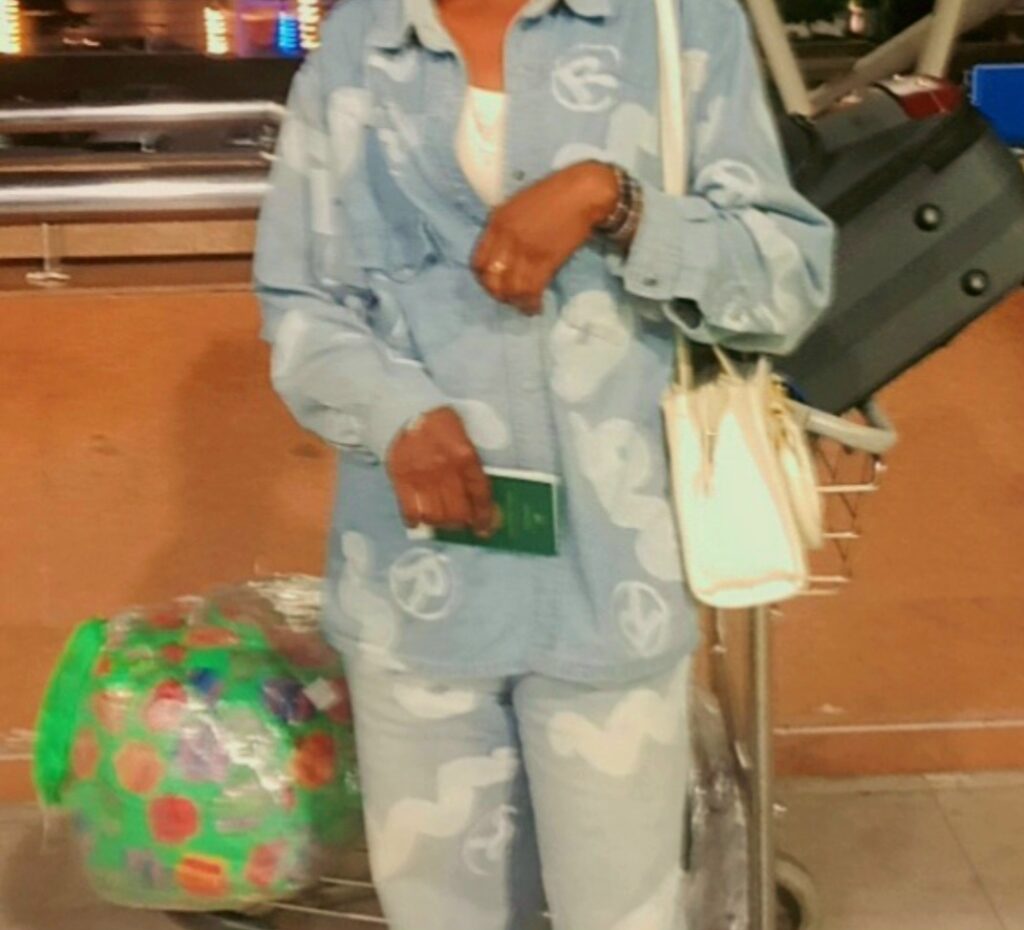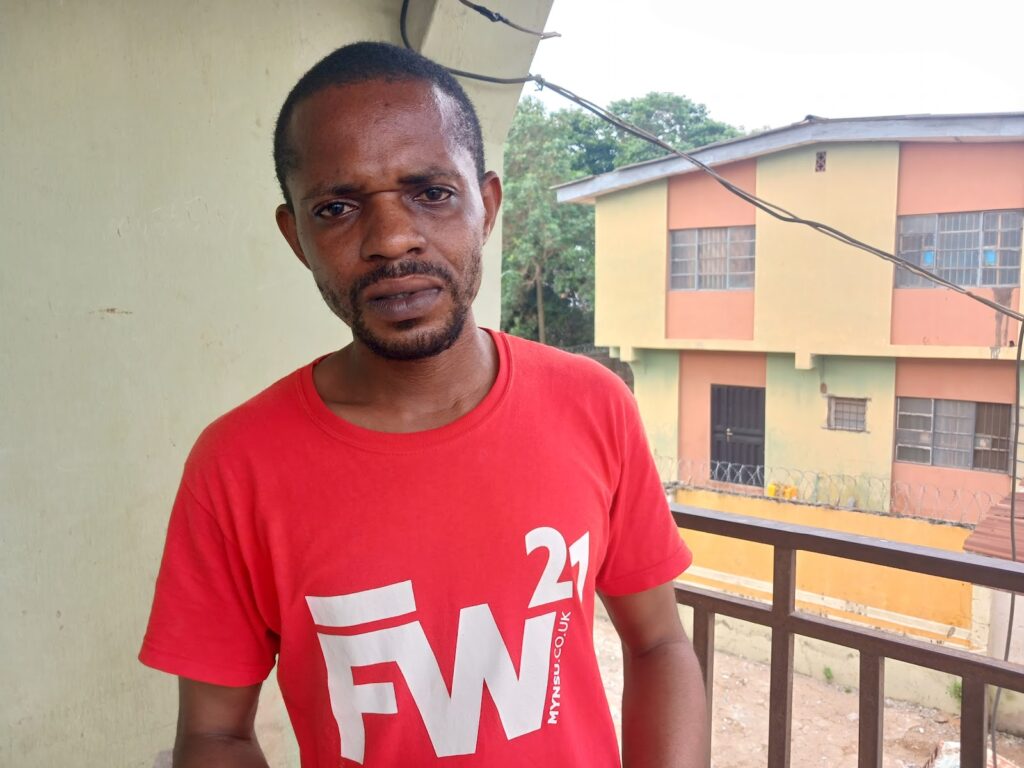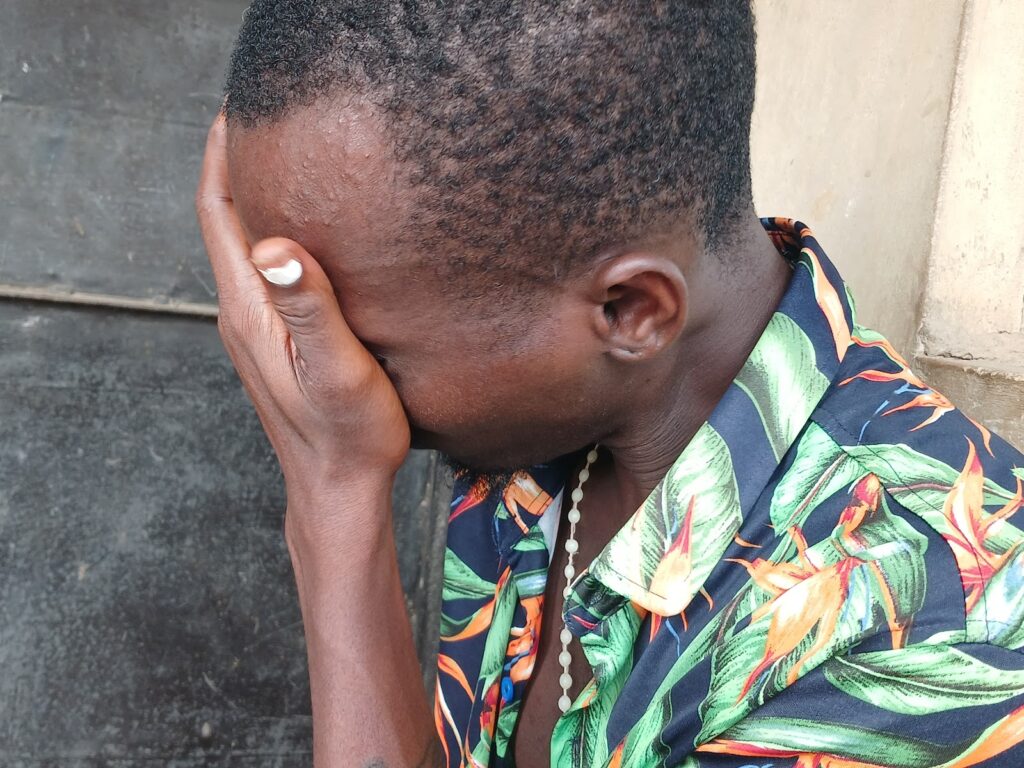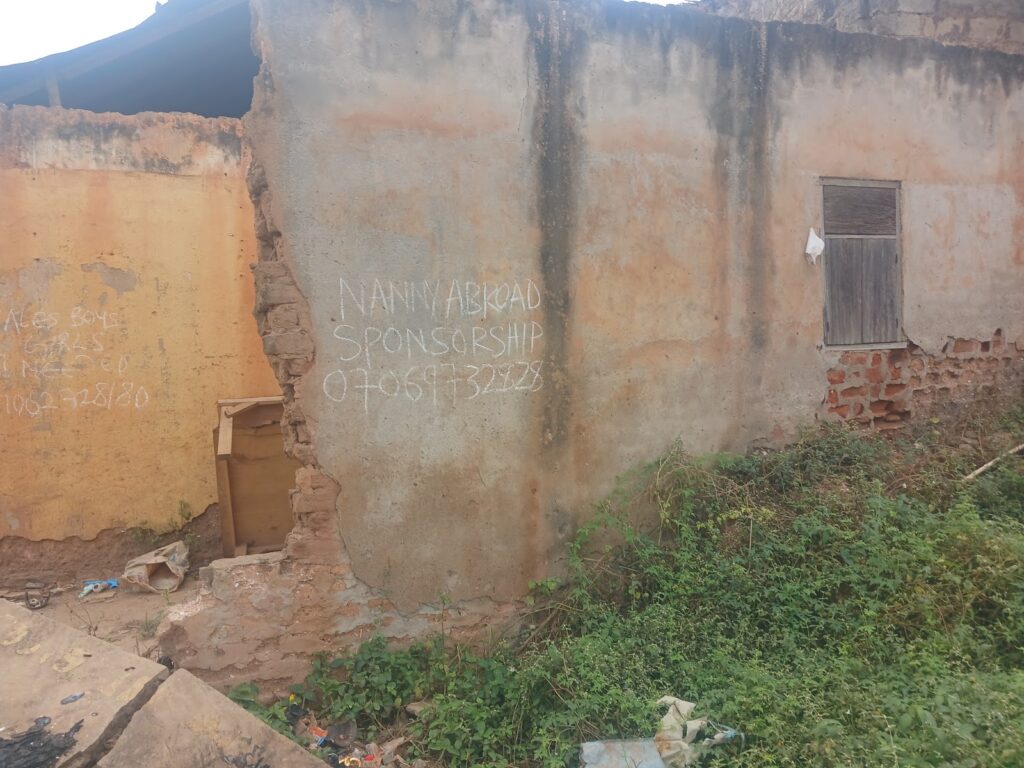Each time Ariyo Falade* considered walking out of the abusive marriage she found herself in 2016, she thought about her children. She did not want to raise them as a single mother.
Even when her husband failed to provide basic necessities for the family, she was always available to fill the gap so that her kids wouldn’t miss the presence of their father.
Sometime in 2020, Ariyo’s husband started having affairs and stopped sleeping at home regularly. Whenever he did show up, his visits were often agonising, as he never talked about the children’s wellbeing. Despite Ariyo’s efforts to keep the marriage, things fell apart in 2022 when she caught him sleeping with a neighbour in their matrimonial bedroom. She protested and accused him of disrespecting their marriage.
“He packed my things out on that very day. So, I travelled to Ile-Ife with my three children to meet my mom,” she recounted. In Ile-Ife, an ancient city in Nigeria’s Southwest, she got a job as a manager in a hotel where she earned an average of ₦80,000 ($49) monthly. According to her, it was enough to keep her children in school and to provide them with other basic needs at the time. “Aside from her children, she took care of me and was always supporting me. We were so close that she never made me feel any pain,” Ariyo’s mother said when HumAngle visited her in February.
The problems started when various clergymen told her that to succeed and achieve greatness in life, she would have to travel abroad. They told her she was destined to leave Nigeria for greener pastures and that would be her only means of becoming a millionaire with a lot of people serving her. Before then, she had also dreamt about relocating abroad.
“Following the prophecies, I decided to apply for an international passport and discussed it with a cousin who told me about an agent that helps people get a sponsorship to Cairo.”
She would later meet the agent whose major business is to link prospective travellers to sponsors and trade-off trafficked girls to Cairo, the capital of Egypt. The agent spoke glowingly about how Ariyo could earn enough money to take care of her children and end poverty in her family within a short period. Upon hearing the stories of good fortune waiting for her in Cairo, where she would work as a housemaid, she resigned from the hotel to embark on a journey she would later regret.

Though her mother discouraged her from embarking on the trip, she was convinced that her fortune lay in travelling abroad. She “kept reminding me about what pastors have been saying that she would only fulfil her destiny by travelling out of Nigeria,” the mother explained. “All she was saying was that she wanted to make more money to take care of her children.”
When Ariyo probed her agent about the modalities for refunding the expenses that would be spent on her travel, the agent said it would be deducted from her monthly salary within a period of 19 months, and she would still be able to take care of her family. She was happy and forgot to ask about the kind of visa she was travelling with.
Days before leaving, Ariyo informed some of her close friends and promised her children that she would be back to pick them up after making some money. She also promised to send them gifts at intervals.
On Aug. 17, 2023, she left Ile-Ife for Lagos where she met five other ladies billed to travel with her. The agent told them they would have to travel to Kano in the North West to board their flight to Cairo the next day. So, they travelled by night bus and arrived at Kano airport the following day. By the evening of Aug. 18, they had all been successfully smuggled to Egypt. It was at the point of registration at the airport they discovered that they were brought in through a seven-week tourist visa. Later that evening, their sponsor, identified as Alhaja, arrived.
“She came to meet us at the airport, and the first thing she did was to seize the travel documents we used for our trip. She took us home and promised to get us jobs as domestic workers,” Ariyo said.

Modern slavery in Egypt
While Ariyo felt bad that she was brought into Egypt with a tourist visa, she was hopeful that her salary would fetch her enough money within a short time so she could return to Nigeria to start a business. She was wrong. Her job is not only difficult, but the stipend she gets from her monthly earnings is too small to feed her, let alone send anything to Nigeria for her children’s upkeep. While she lives in hardship, her trafficker receives the bulk of her salary, the same as the other victims.
Egypt lies within the North African desert belt, and large swaths of the country are covered in desert sands. So, each time the wind blows, the dust from the desert affects different homes, necessitating domestic cleaning services. These services are, however, mostly carried out by foreigners smuggled in by job traffickers who give them to wealthy families to keep their villas free of dust particles. Popularly regarded as Chagala, the domestic servants, who live at their masters’ residences, cook, wash, clean and babysit.
“I got a babysitting and cleaning job the following week when I arrived in Cairo, but my boss was a weird human being. She treated me like a slave. During my stay at her place, I woke up at 7 a.m. every day and slept around 5 a.m. the following day. So, I was sleeping for just two hours except for the days I dozed off while cleaning. When it was difficult to cope at the place, I complained to my sponsor, and I left after a month,” Ariyo narrated.
While her Egyptian master paid 6,500 EGP (₦343,000/$210) to Ariyo’s trafficker for the service rendered for the month, she was only given 300 EGP (₦15,000/$9.71) for her upkeep, making it difficult to take care of herself or send money to her children in Nigeria. She has since gotten another job, but the situation remains the same.
All the victims who spoke with HumAngle explained that the stipend they receive from their monthly pay is not commensurate with the services they render and the cost of living in Egypt. Yet, they cannot complain because they have no legal rights under Egypt’s laws. On some occasions, Egyptians take advantage of their domestic servants because they know they are illegal immigrants. When the victims protest, they are wrongly accused of theft and threatened with arrest and deportation. HumAngle obtained a video of a Nigerian molested, stripped naked and threatened with police arrest by her boss.
“I regret leaving Nigeria, and I am not happy,” Ariyo cried. “I am suffering here and need a helper. My children can no longer go to school because my monthly stipend is not enough. I am even using rags to replace the menstrual pads because I cannot afford any. As I speak, my passport is with my sponsor, and I can’t get it from her unless I finish paying her. It’s more or less like I am in prison.”
Mass arrests
There have been mass arrests of illegal migrants in Egypt as the government orders all foreigners to pay visa overstay fees and residency permits, which cost $1,000 before mid-March or risk being jailed. The move, according to local press reports, is to get more foreign currency to save the country from the US dollar shortage amid rising debt and inflation.
As the deadline given to them to regularise their status draws closer, Nigerians working as domestic servants in Cairo told HumAngle they are living in fear because police are already arresting some victims of job trafficking without waiting for the end of the grace period. Rather than deport them, the arrested victims are kept in prison until their relatives in Nigeria raise money for deportation and refund all the expenses incurred on them while in detention, sources said.

“I recently escaped arrest when my madam asked me to take her son for a walk on Feb. 22. The police raided the park where I took the boy, and I had to hide in the toilet till they left. If arrested, I would be held in detention till my relatives in Nigeria send money for deportation. It is so sad that my agent and sponsor did not inform me about the challenge here. We were never told that we wouldn’t have a work/residence permit,” Ariyo said as she cried.
Back at home, life has been more difficult for her mother and children, who have stopped going to school due to the failure of their mother to raise their tuition.
“I am mentally disturbed by the news from Cairo,” the mother lamented. “My daughter has become poorer as she continues to run helter-skelter to avoid being arrested. The highest amount she sent home since she travelled was ₦10,000. How is that enough? I am only hoping that God will assist me. It’s better to be here and suffer together than to stay illegally in Cairo. I regret allowing her to go. I go to the farm on Sundays and return on Saturdays so nobody can raise the children. It’s sad that the pastors’ prophecies misled my daughter.”
The National Agency for the Prohibition of Trafficking in Persons (NAPTIP) has, over the years, raised alarm over victims of forced labour in Egypt. The former Director General, Julie Okah-Donli, in 2019, said most ladies trafficked to Cairo are forced to work 20 hours for months without adequate pay. Oftentimes, victims are unable to get a work visa even after paying off their sponsors.
HumAngle contacted NAPTIP for this report and received an email response where it promised it was taking action on the issue. We also reached out to the Nigerians in the Diaspora Commission (NIDCOM) for comments, but the agency has yet to respond.
‘From frying pan to fire’
Temi Adelakun* was smuggled into Cairo by the same trafficker who brought Ariyo in. According to her, their acclaimed sponsor, who is also a Nigerian, is making fortunes from the operations. Alhaja lives in a three-bedroom flat, which also serves as a ‘refugee camp’ for the traffic victims. Temi, a national diploma certificate holder from Lagos State Polytechnic, was trying to get away from a bad situation in Nigeria but ended up in a worse one.
Before migrating, she worked with a betting company while her husband, Adeyemi, worked as a quality controller at a hair-producing company in Lagos. While struggling to get money to take care of her father, who is battling a stroke, her father-in-law became blind. After four years of difficulty as a result of debts incurred to take care of the sick parents, the couple was introduced to an agent who promised to assist by facilitating Temi’s travel to Cairo.
“I didn’t have a stable job in Nigeria, and my husband hardly made any savings from his ₦50,000 salary because we were refunding debts incurred at his office. In the long run, I was introduced to an agent and started making my travel plans. By August 2023, I had gotten a sponsor through my agent. I travelled to Abuja on Aug. 21 and left for Cairo the following day. I was later received by the sponsor, who seized my passport immediately,” she narrated.
“The woman never explained that our visa would not cover our stay. When I asked her how to survive in the new location, we were deceived that the stipend from our salary would be enough to take care of our family and us in Nigeria. I later realised that the money was insignificant. I protested, but there was nothing I could do,” she said over the phone as she wept.
“The job is hard here as we are not treated as housemaids but slaves. I cry every day since I got here.”
Before leaving for Cairo, Temi borrowed some money from her sponsor to take care of her children. So, her stipend is way lower than others as she’s still refunding the loan she took in early August 2023. According to her, she’s been “working in vain and yet to send a dime to Nigeria since” she got there.
One morning, her mother-in-law was involved in a motorcycle accident in Lagos that injured her leg. She has yet to walk four months later. This has added to the family’s financial troubles. “I’ve spent over ₦300,000 on her,” Adeyemi said. “If the Nigerian government can help bring my wife back home, I will be happy because I regret allowing her to embark on the journey. In fact, her absence has made my children more vulnerable because I leave the house to my office as early as 6 a.m. and return late in the night everyday.”
“I have been living in depression because of the sad news from Cairo where my wife is treated as a slave. I need the good people of Nigeria to help facilitate her return even if we have to end up drinking garri together,” he added.

Asked if she’s willing to return as proposed by her husband, Temi replied yes because she risks being arrested and jailed if caught.
“I came here so my children could live a better life but their situations have even become worse. Even if I finish paying my sponsor, it does not guarantee a work permit, and I will be asked to pay a fine for overstaying if caught. I am sick and tired,” she said tearfully.
Alhaja, who sponsored their trafficking to Cairo, is aware of the frequent arrests going on and the deadline given to foreigners to regularise their permit, but she’s handling the matter with levity. She told the women none of them would be allowed to leave for Nigeria unless they paid what was expected for the 19-month period.
When some of the trafficked victims were arrested days ago, Alhaja never showed up because she’s also an illegal migrant, HumAngle learnt.
‘Hell on earth’
The thread of disappointment runs through the stories of several other victims who spoke to HumAngle.
Bose Abioye’s* ordeal started in 2017 when her tailoring shop was demolished by the Lagos state government. A year later, she was offered the opportunity to travel to Riyadh in Saudi Arabia on a two-year contract.
“I agreed, thinking it would uplift me and my children. When I got to Saudi in May, I was made to know that I would not have access to a phone and my travel documents were seized. My sponsor, who is an Arab, only allowed me to speak with my relatives twice a month with her phone,” she recalled.
Eventually, she fled and found a new job in Jeddah. Then, during the COVID-19 pandemic in 2020, she sought the help of the Nigerian embassy to return home. Unfortunately, her sister squandered the one million naira she had saved up to start a business in Nigeria.
“I was crying in my sleep, and everything was just a mess. I later met a man who told me that he had a girlfriend in Cairo. He told me it wouldn’t be as stressful as Saudi, and I would be able to make up for all I had lost. While I was not so convinced about it, I had already become a burden to my aged mother and my elder sister, who was taking the sole responsibility of my children.”
She says she is treated like a slave in Egypt, and when she told Alhaja she could no longer cope, she responded that she would only release her passport once she paid up ₦1.8 million.
“Coming here is the greatest mistake I’ve ever made in my life because I haven’t sent anything to my parents and children since I got here. Two of my children are in tertiary institutions, and they are battling with depression,” she said.
“Even when I am sick, I still have to work in a bid not to elongate the months I will have to spend to return my sponsor’s money. My mum is sick and wants me home, but I cannot leave. I am battling with repeated headaches and chest pain, yet my pocket money is not even enough to buy me drugs. This place is hell on earth.”
Bose’s mother said she wished her daughter had listened to her advice to remain in Nigeria. Her son, Olumide, told HumAngle he becomes miserable anytime he speaks with her mother on the phone because they never expected life to be this tough for her in Cairo.

When Semilore* worked as a Point of Sale (POS) agent in Nigeria, she received a daily pay of ₦2,500, which she said was enough for her upkeep. A year ago, her friend convinced her she could end her family’s abject poverty by travelling abroad. Like other victims, she was not given the full picture.
“My parents’ condition made me accept the offer to travel to Cairo because apart from the pepper my mum sells, she also works as a housemaid on weekends. I was not comfortable with my family situation, and I thought I should make an effort to change the narrative. Unfortunately, the POS job I left in Nigeria is better than what I currently face here. I eat once a day because the stipend I get from my monthly salary is not enough,” she said.
“My prayer is that they should not arrest me, but if they do, I will rot in jail because there’s no way any member of my family would be able to raise the fine the Egyptian government is asking for. In fact, I cannot tell my mother about my current condition because she’s hypertensive.”
Traffickers continue illegality
According to the International Labour Organisation (ILO), human trafficking is one of the biggest illicit trades in the world, as traffickers make an estimated $150 billion in profits yearly as of 2014. In Egypt, traffickers target women from Ethiopia, Nigeria, Sudan, and Indonesia, among other countries, for forced labour. The victims are overworked and undergo psychological trauma.
Despite the bitter experiences of victims, traffickers continue to lure unsuspecting people. Semilore told HumAngle about a victim who was deceived by her agent and sponsor last January. While the victim told her agent she was not interested in going to Cairo because of the mass arrest, “she was deceived that they were taking her to Egypt, not Cairo.”

During HumAngle’s visit to Ile-Ife in February, I saw an advertisement with the phone number of an agent ‘helping’ Nigerians to secure nanny jobs abroad. When I reached out, pretending to be interested in sending some relatives abroad, the agent, who simply identified himself as Olabode said he was facilitating the movement of Nigerians to Arab countries. “Do they have international passports?” he asked. “We are taking people to Arab countries.”
When I brought up the developments in Cairo and the challenges victims there are facing, Olabode argued that they are victims of circumstances.
“The people running helter-skelter must have betrayed their sponsors. I have someone owing me over two million naira, and that’s why we are always seizing their passports. Those saying that the police are arresting them are simply looking for a way to run away without paying their sponsors,” he said. “If you are doubting me, go and meet your clerics to pray over it. Anybody going through me cannot have issues.”
*Names of victims were changed to protect them from intimidation.
Support Our Journalism
There are millions of ordinary people affected by conflict in Africa whose stories are missing in the mainstream media. HumAngle is determined to tell those challenging and under-reported stories, hoping that the people impacted by these conflicts will find the safety and security they deserve.
To ensure that we continue to provide public service coverage, we have a small favour to ask you. We want you to be part of our journalistic endeavour by contributing a token to us.
Your donation will further promote a robust, free, and independent media.


